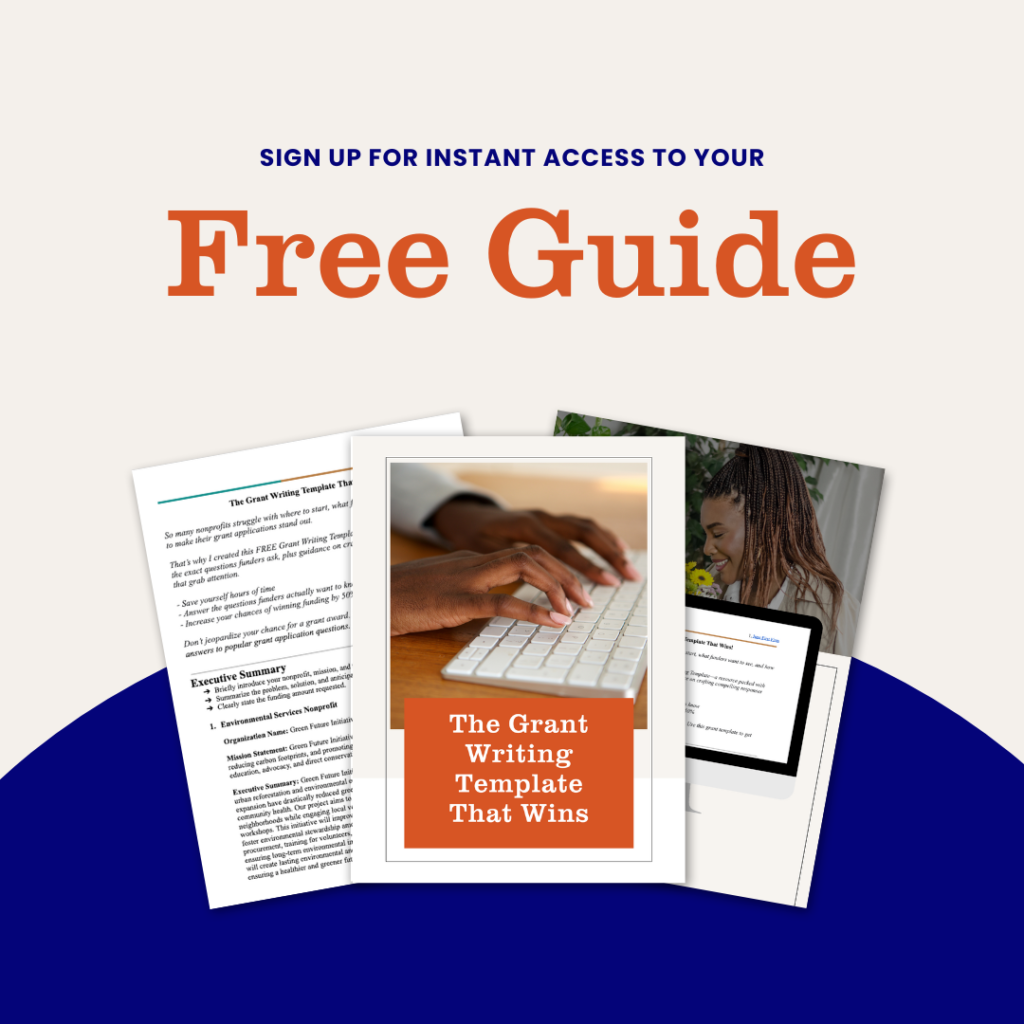FREE RESOURCE: Download The Grant Writing Template That Wins | Click the Mailbox to Sign Up → 📫
The ultimate place to visit to learn grant writing tips. On this blog, you can view articles as well as videos where I share real grant proposals – not just questions but how to answer the questions.
Learn what funders want to hear. Learn what successful proposals look like and so much more.
Sign up to “Grant Pro In Your Back Pocket,” and get weekly insights on public funding opportunities and grant writing tips
FREE RESOURCE
So many nonprofits struggle with where to start, what funders want to see, and how to make their grant applications stand out.
That’s why I created this FREE Grant Writing Template—a resource packed with the exact questions funders ask, plus guidance on crafting compelling responses that grab attention.
Are you ready to:
Then don’t jeopardize your chance for a grant award.
Use this grant template to get answers to popular grant application questions!

Need Done for You Grant Writing:
See My Grant Writing Service
Want To Equip An In-House Grant Writer:
Learn About the Train Up Your Grant Writer™ Offer
Interested In Business Coaching:
The You Are the Prize Program for Grant Writers
Do you need an hour to learn about federal grants (HRSA, HUD, SAMHSA, and DOE), state/county grants (CDBG, ARPA), healthcare, and housing grants?
Or maybe you need an hour to chat about business expansion as a grant writer – like scaling, subcontractors, increasing your prices, and more?
Copyright © 2025 June First Firm, All Rights Reserved. Privacy & Terms.